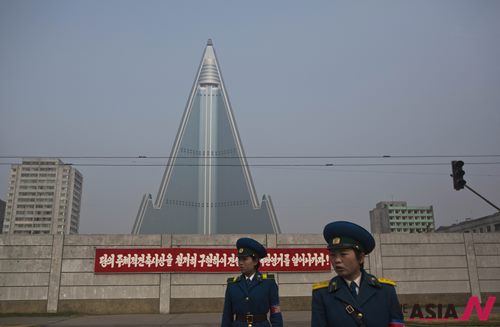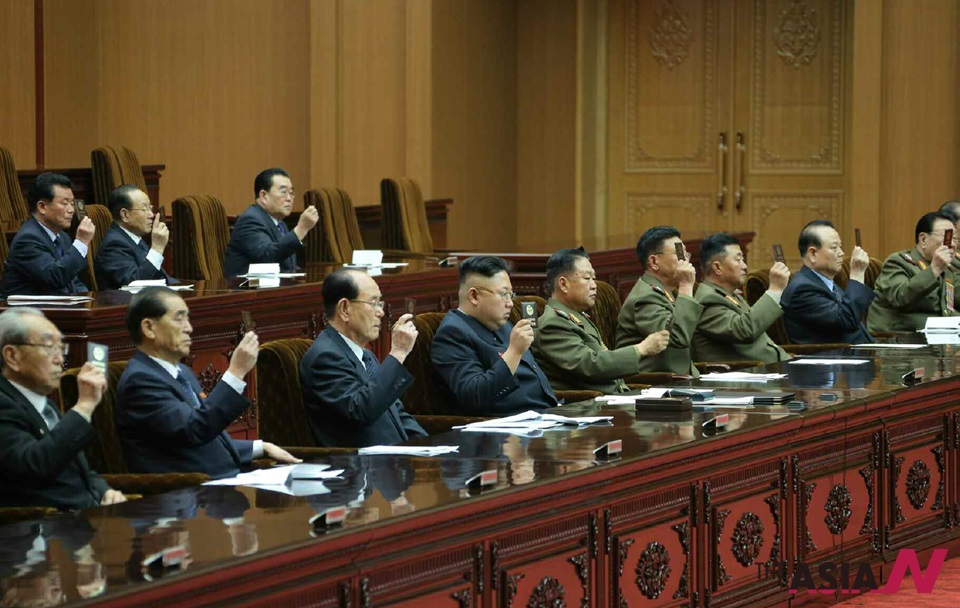
Korean Central News Agency and ‘Comrade Mr Miller’
In April 2014, North Korean border guards at Pyongyang international airport were treated to an unusual sight: a 24 year old American named Matthew Todd Miller tore up his North Korean tourist visa and submitted his American passport while requesting an asylum in North Korea.
This event was promptly reported by the Korean Central News Agency (KCNA), which did not immediately hail ‘Comrade Miller, the true representative of the peace-loving, downtrodden masses in the United States’. Rather, the KCNA quickly pointed out that Miller had violated immigration laws.
We heard recently about Mr Miller again when the North Korean government released a brief statement in which it was said that Miller would soon stand trial in Pyongyang. His attempted defection seems not to have ended well.
Perhaps it is time to think about precedents for Mr Miller’s behaviour – assuming, that is, that KCNA did not lie and that he really did ask for asylum in North Korea.
Once upon a time, countless communist zealots rushed to Moscow with the expectation that they would partake in the grandiose project of paradise building. Some of them indeed made brilliant careers for themselves, others lived rather unremarkable lives often regretting their naive idealism. A surprisingly large number of them though, perished in the Great Terror of the late 1930s.
However, apart from these hard-line communists, most of whom had clear (if seriously distorted) ideas about where they were going, there are also many cases similar to that of Mr Miller. People disappointed with real or perceived injustices that they faced back in their home countries chose to go to what they saw as a paradise on earth (or one in the making) only to be bitterly disappointed and have their entire lives destroyed.
One can, for example, refer to the story of Yoshiko Okada, a famous actress of the silent film era in Japan and her husband, a famous film director Ryokichi Sugimoto. The couple were incensed with Japanese militarism and decided to run away. In January 1938 they went to southern Sakhalin and volunteered to do a performance for Japanese border guards. Once on the border they ran away, crossing over to the Soviet Union.
They were immediately detained, but for a brief whilethe Soviet authorities treated as guests. However, soon it was decided that they must be Japanese spies and were thus dealt with accordingly. It did not help that the young idealists openly expressed their admiration for VsevolodMeyerhod, a Soviet theatre director who had just been arrested and was executed soon after.
This was not a good time to be a Japanese person in Russia, as Okada and Sugimoto discovered. Little is known about the fate of Sugimoto because his case was archetypal of late 1930s Soviet justice. He quickly admitted his guilt, signed the relevant statement and was given the customary bullet in the head. Fortunately for her, Okada was treated with a measure of leniency, though her interrogators (incidentally, ethnic Koreans) proved themselves quite adept in the fine art of beating their charge. The woman was quickly broken, signed her confessions and spent ten years in prison camp where she
managed not to perish (not a small achievement demure star of the Japanese silver screen).
Upon release, Okada was not allowed to return to Japan. She worked as an announcer at a Moscow-based Japanese language broadcaster, married a Japanese prisoner of war and even managed to graduate from an acting school in spite of her rather advanced age. In a sense she was lucky.
While Okada and Sugimoto are still remembered by a small number of history/cinema buffs, another rather similar incident is seemingly forgotten. The story of Edward Speier, a 38 year old metal worker from Detroit was discovered by Tim Tzouliadis, a journalist and historian.
Edward Speier stowed away in a boxed locomotive that had been loaded onto a Soviet ship in California in September 1941. Before his escape, he told his mother that he wanted to help the Soviet cause as a skilled mechanic.
Predictably, the Soviet police upon his arrival arrested this clueless enthusiast. For a change, though, he was allowed to meet US consular officials (after all, this was the era of t. At his first meeting, Speier spent his time denouncing the US social system. He said, “in every country there are good and bad people, but whereas in the United States the bad people are running the government, in the Soviet Union the bad people are all in jail.”
Six months later, in March 1942, Speier had obviously changed his attitude regarding the social composition of Soviet jails. While talking to a consular official he denied that he had ever said anything bad about the United States (as if paper and pencil did not exist) and begged for help. Obviously, Uncle Sam decided not to intervene and Soviet authorities warned American officials that “normal Soviet law would be applied to Speier’s case”. On the 3rd January 1943, EdwardSpeier died of pneumonia in a crowded prison train while being transferred to another prison camp. His case is completely forgotten.
Admittedly, these stories are from history. Times have changed a great deal and North Korea, whatever the Western public believes, is remarkably cautious in the ways it deals with foreigners. Thus, Mr Miller is likely to emerge soon from his trial very much alive and quite healthy.







